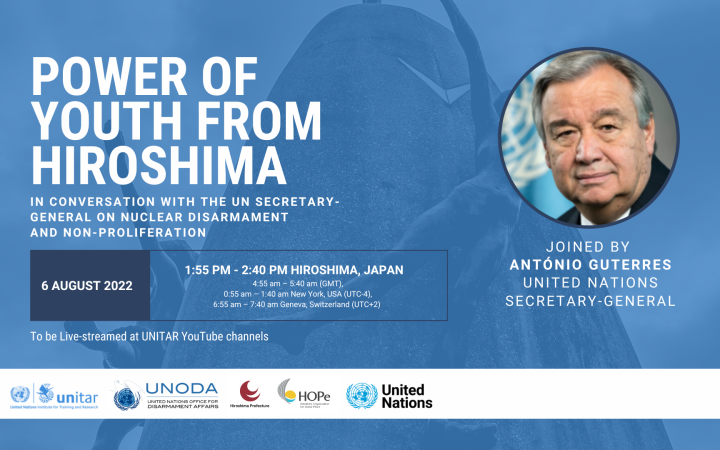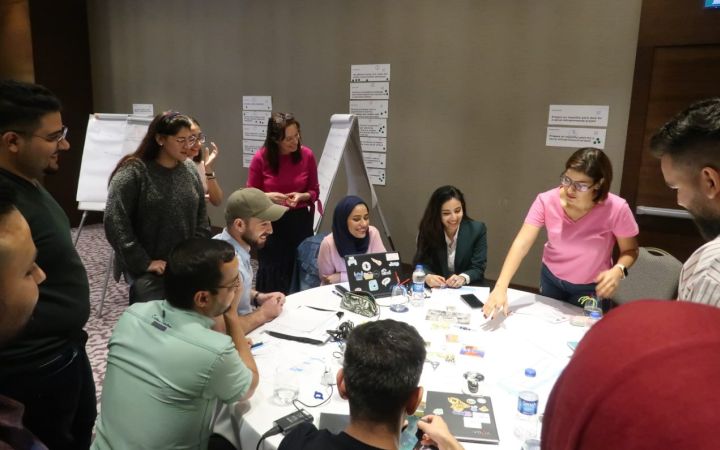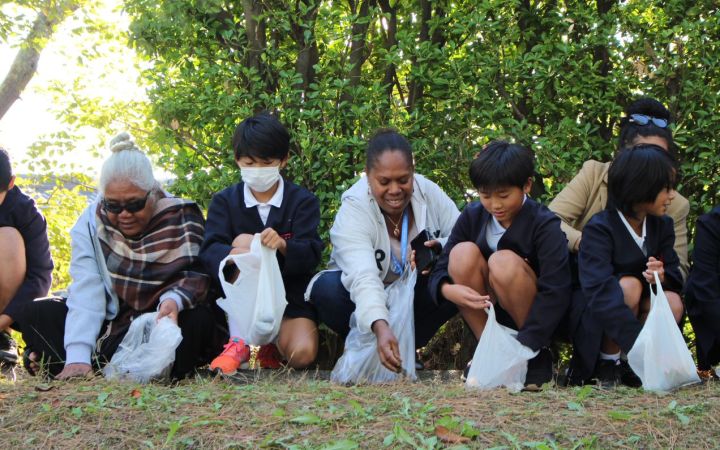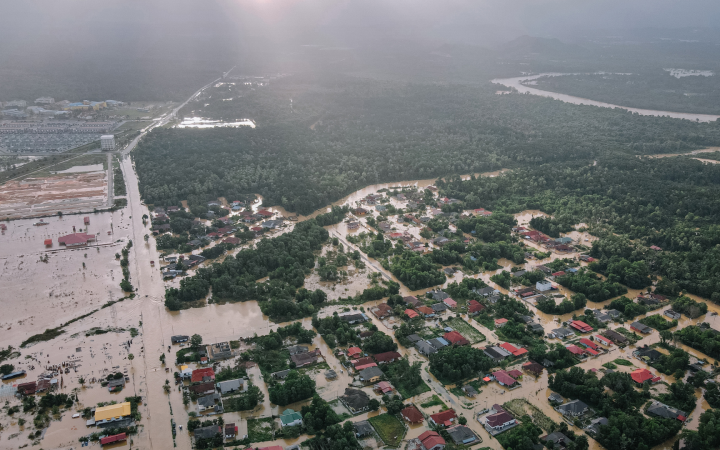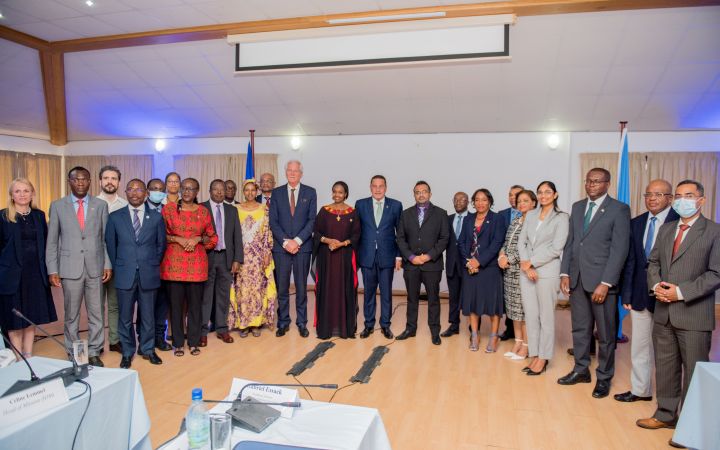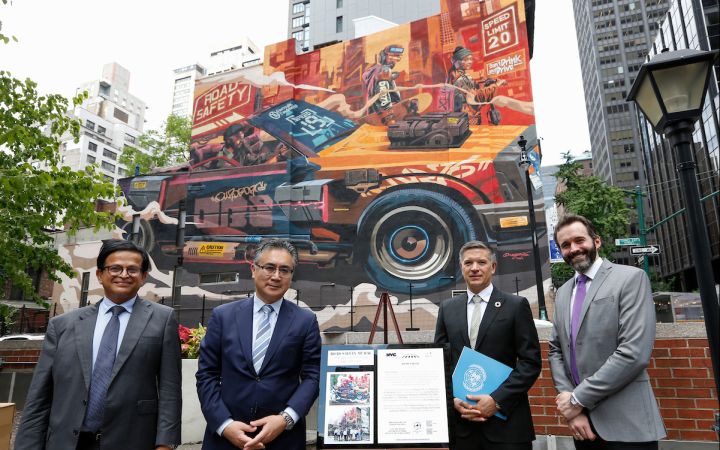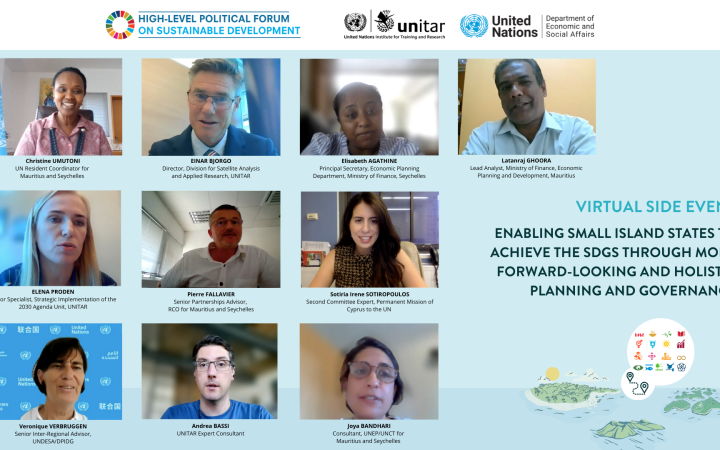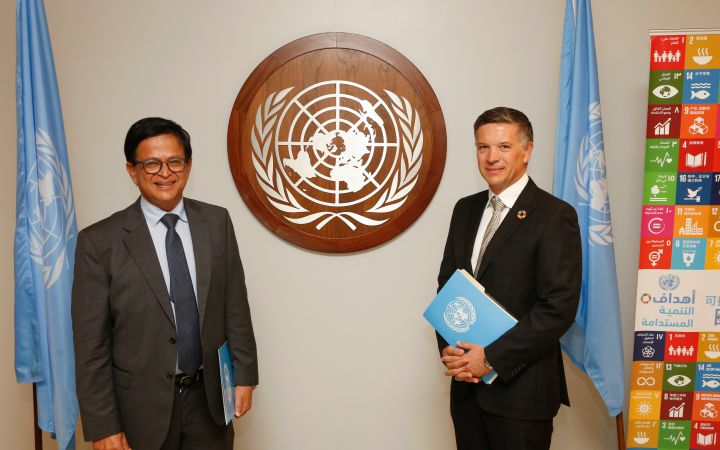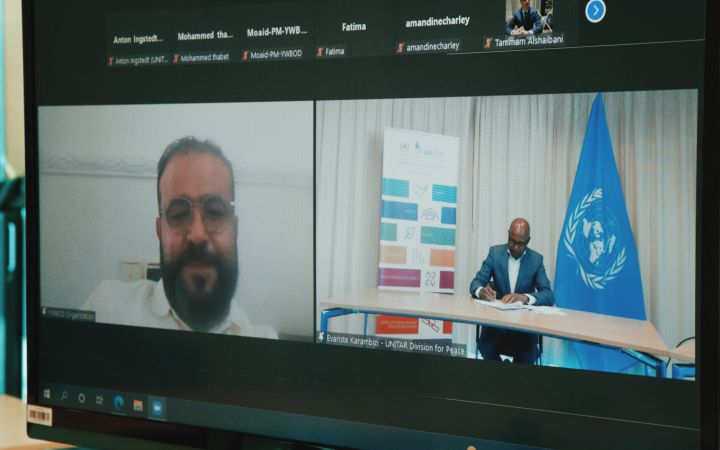Displaying 671 - 680 of 1097
02 August 2022, Hiroshima, Japan – 6 August 2022 marks 77 years since an atomic bomb was dropped on Hiroshima. To commemorate the day, youth from across Japan will have a heart-to-heart talk with António Guterres, Secretary-General of the United Nations, about their ideas and solutions for achieving a peaceful, more secure and sustainable world – one without nuclear weapons. The informal, in-person gathering will be held in Hiroshima in parallel with the annual Hiroshima Peace Memorial Ceremony. The session will be livestreamed in English and Japanese via YouTube.
New Regional Online Academy on Clean and Inclusive Energy Transitions in the Context of Green Recovery in Southeast Asia. The Academy aims to build capacities and facilitate experience-sharing among key stakeholders from SEA in support of a clean and inclusive energy transition. Registration open!
25 July 2022, Hiroshima, Japan - UNITAR Division for Prosperity invites young entrepreneurs in Egypt, Iraq, and Lebanon to apply to the Great Ideas Space 2022: Entrepreneurship for Public Health and COVID-19 Recovery in Egypt, Iraq, and Lebanon. The programme aims to train entrepreneurs and MSMEs to design and implement business/projects that address challenges coming out of COVID-19, especially in public health. The application deadline is 28 August 2022.
25 July 2022, Hiroshima, Japan – UNITAR Division for Prosperity invites applications from women living in or from the Pacific Islands Countries and Territories and Asia to the seventh Women’s Leadership Tsunami-based Disaster Risk Reduction Training Programme. This programme is primarily for women but others are also welcome to apply. The application deadline is 2 September 2022.
21 July 2022, Geneva, Switzerland - UNOSAT delivered a week long training in collaboration with IORA and with the support of GIZ on the use of GIT for Disaster Risk Management. This is the second part of a training programme targeting experts in a region known as the “World’s Hazard Belt”.
19 May 2022 - The First Multi-Sector Policy Dialogue between the Government of Seychelles and the United Nations Country Team provided space for discussing areas of focus for the UN’s support for the implementation of national development strategies and SDGs, as well as the areas of focus for the next Strategic Partnership Framework. On this occasion, UNITAR’s representative had an opportunity to present to the Ministers of the Seychellois Government and UN Regional and Country Directors UNDESA-UNITAR’s analytical paper illustrating the use of system thinking and how it can be used to bridge long-term priorities and immediate needs as part of an integrated planning approach.
UNITAR unveiled a road safety mural offered to New York City. The artwork, curated by Street Art for Mankind (SAM) and created by street artist Dragon76, supports the UN Decade of Action for Road Safety (2021-2030), conveys road safety messages and envisions a future in which roads are safer places for drivers and pedestrians. The mural was made possible thanks to the support of AB InBev Foundation and AB InBev. The wall was donated by the Chhabra family and the production was facilitated by the Triborough Bridge and Tunnel Authority (TBTA) and the City of New York Mayor’s Office.
On 13th July 2022, during the 2022 High-Level Political Forum on Sustainable Development (HLPF), the United Nations Institute for Training and Research (UNITAR) organized jointly with the Division for Public Institutions and Digital Government of the United Nations Department of Economic and Social Affairs (UNDESA/DPIDG) a virtual side event entitled "Enabling small island states to achieve the SDGs through more forward-looking and holistic planning and governance".
Mr. Michel Doukeris, Chief Executive Officer of Anheuser-Busch InBev (AB InBev) and Mr. Nikhil Seth, United Nations Assistant Secretary-General and Executive Director of the United Nations Institute for Training and Research (UNITAR), renewed the partnership agreement between both organizations to continue to improve road safety. They also agreed to develop initiatives focused on women empowerment and entrepreneurship; and promote sustainable water management practices.
توقيع مذكرة تفاهم بين منظمة شباب بلا حدود للتنمية (YWBOD) ومعهد الأمم المتحدة للتدريب والبحوث (UNITAR) للشراكة في تنفيذ انشطة تسهم في تعزيز القيادات الشبابية والنسائية في المجالات الإنسانية وبناء السلام والتنمية في اليمن (Triple Nexus).


